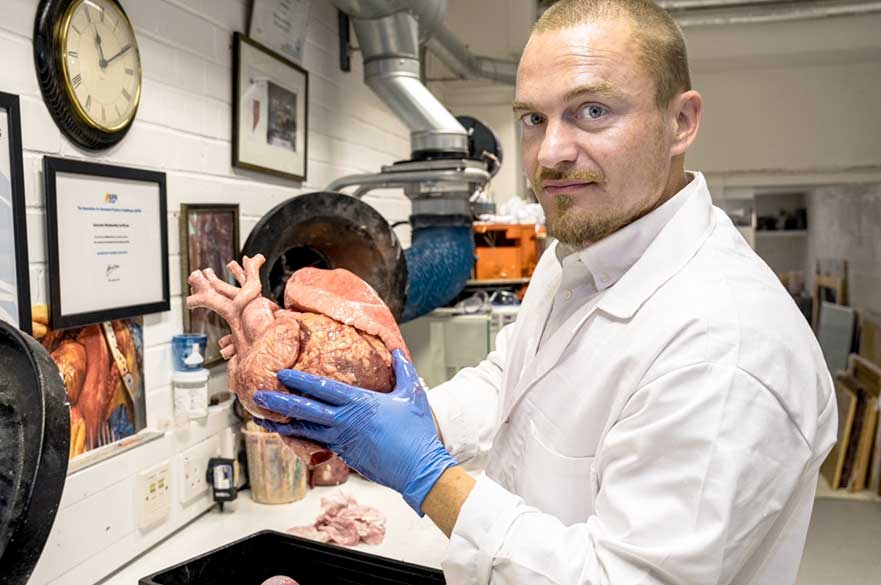Researchers at Nottingham Trent University (NTU) have developed a model of a diseased heart and lung that can breathe and bleed like a real organ to train surgeons for heart transplants.
Led by Richard Arm, a Senior Research Fellow, scan data from a heart failure patient and a healthy donor heart were used to create the models as realistically as possible using a 3D printer. These allow surgeons to practice transplant operations.
The models, made from silicone gels, fabrics and fibers, are characterized by the haptic properties of human hearts, including different tissue hardnesses. They allow surgeons to practice incisions through the pericardium and the blood vessels that connect the heart to the lungs and the rest of the body.
Notably, the models have bleeding vessels to simulate the experience of clamping to stop bleeding before making incisions to remove the diseased organ. A healthy donor heart can be sutured into place using real surgical instruments, and the procedure can be repeated as the models are repairable and reusable.
“The aim is to give surgeons the opportunity to learn the technical aspects of organ transplant surgery and experience the tactile aspects of removing a failing heart and connecting a different healthy one, identifying and suturing the vessels that keep the donor heart in place,” said Richard Arm. “This technology can simulate bleeding like a normal heart to provide the actual experience and limited visibility that surgeons must face on the operating table. The model is designed to be affordable, reusable and portable, to maximise access to the technology, allowing for increased risk-free training opportunities for transplant surgeons around the country.”
The project was funded by the Freeman Heart and Lung Transplant Association and presented at the Society for Cardiothoracic Surgery on March 18, 2024.
Adele Lambert, chairperson at the Freeman Heart and Lung Transplant Association (FHLTA), said: “The FHLTA are proud to help fund this project as we look to the future of transplantation, we know that this innovative research will help to improve surgeons’ techniques for organ transplantation.”
Subscribe to our Newsletter
3DPresso is a weekly newsletter that links to the most exciting global stories from the 3D printing and additive manufacturing industry.






















